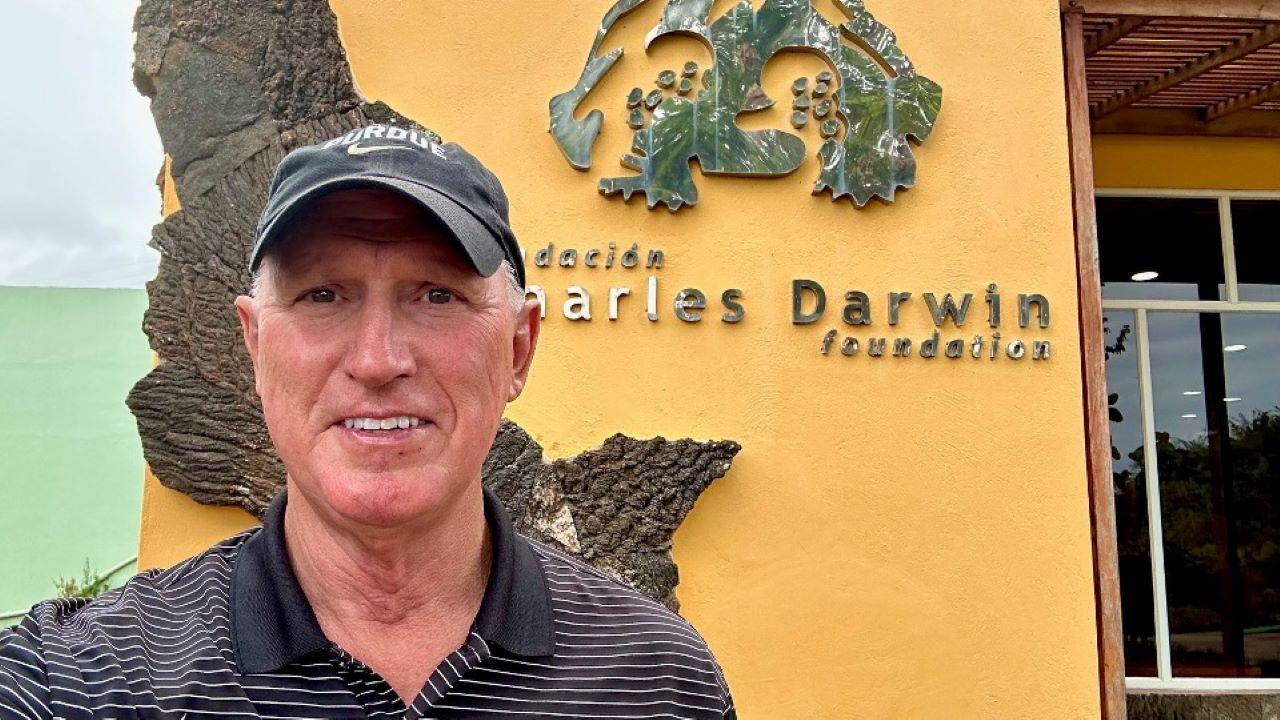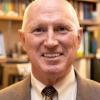John Sheffield, a Purdue Polytechnic professor of Engineering Technology, took a recent trip to Ecuador as part of a Fulbright-sponsored program aimed at supporting Ecuador’s clean, resilient energy goals.
As a Fulbright Specialist (an appointment granted by the State Department and the Fulbright Foreign Scholarship Board), Sheffield collaborated with Universidad San Francisco de Quito (USFQ) throughout his 3-week visit starting on July 5 and going until the 26. Ecuador’s environment has led to many opportunities—and also some unique challenges—for thinking about renewable energy sources, and Sheffield’s journey focused on several of these challenges.
For instance, Ecuador possesses regions such as the Galápagos Islands which frequently end the season with a green energy surplus that cannot be used. Finding use for these clean, renewable substitutes for fossil fuels could better safeguard the vulnerable ecosystems of the Galápagos Islands.
Although the Galápagos Islands generate a relatively low carbon footprint compared to other regions, they are not exempt from the environmental impact caused by the use of fossil fuels and other polluting practices linked to human activity. Due to their ecological, symbolic, and scientific significance—particularly as a global reference point in the theory of evolution—the Galápagos represent a strategic territory for piloting an exemplary transition to a sustainable energy model.
In response, Ecuador’s government has prioritized creating a net-zero energy system in the archipelago. The Ministry of Energy and Mines has promoted initiatives in collaboration with the Inter-American Development Bank (IDB) including studies on solar and wind power generation, electric mobility, smart meters, induction cooking and decentralized generation, all aimed at reducing greenhouse gas emissions.
Standouts include the implementation of hydrogen-powered inter-island maritime transport, a pilot project for tourist transfer between Baltra and Santa Cruz, and the synergistic integration of wind and solar power systems. The role of green hydrogen is analyzed as a high-density energy vector, competitive with fossil fuels, and produced through electrolysis powered by renewable sources.
While in Ecuador, Sheffield gave lecture at USFQ called "Pathways for Green Hydrogen in the Galápagos Islands". A few days later, he delivered a talk at the 7th Galápagos Research and Conservation Symposium, which took place in USFQ's Charles Darwin Convention Center on San Cristóbal. His talks described the science and future possibilities for green hydrogen in Ecuador, while generating conversations with students, faculty, and policy makers in attendance.
However, the visit didn't end on the podium. Sheffield also mentored three students at USFQ, helping one student develop two academic journal articles. He had a 90-minute strategy meeting with Dr. Diego Quiroga, the rector of USFQ, and members of the faculty, where they invited Sheffield to help formally expand connections—leveraging Purdue's network, including contacts at UTEC in Peru, TU Delft in the Netherlands, and energy-focused organizations in the US and Europe.
"Being in the Galápagos reminded me what is at stake," Sheffield said. "You see, firsthand, how climate and energy choices impact real ecosystems and real people. That's what's important about this kind of international collaboration."
This is only the start. Conversations are now underway regarding a three-way academic collaboration between Purdue, USFQ, and UTEC on goals ranging from global learning initiatives to small modular nuclear reactors to provide energy in remote places.
Sheffield's project received funding through the Fulbright Specialist Program, the US Government's flagship international exchange program. Every year, the Fulbright program selects a number of US professionals from around the country (based on academic excellence and promise of leadership), and sends them to educational institutions around the world to assist the institution in building capacity, knowledge exchange, and ongoing partnerships that benefit the host institution alongside the US university.
For Purdue Polytechnic, this illustrates again how applied research, global outreach, and the principle of learning by doing can converge to tackle real-world challenges.

